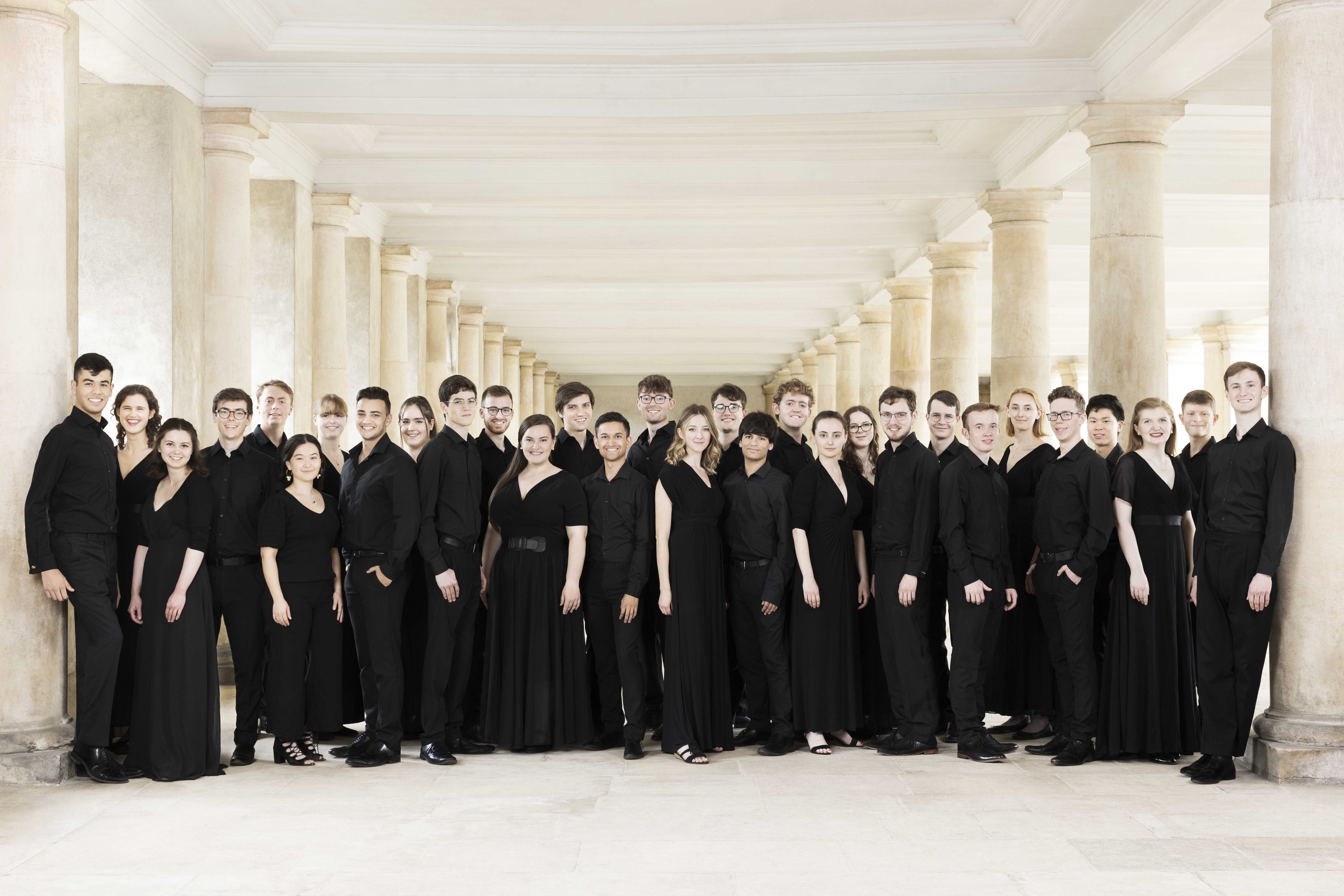Canada Tour, Jul 2017 - Artsfile Canada
> See concert details...It’s been 20 years since a version of The Choir of Trinity College Cambridge performed at Chamberfest. But in the history of the ensemble that is but a blink of time.
Choirs were singing in Trinity College in the 14th century. A more formal organization was founded by Mary Tudor in the mid-16th century. Over the centuries since, the choir has established a standard of singing that saw it rated by Gramophone magazine in 2011 as one of the best choirs in the world. That it is made up mostly of students is even more impressive.
Friday night, to a packed Dominion Chalmers United Church, in the last night of a tour of Ontario, the 35 young men and women put on an impressive display of choral music through the ages that was very rooted in the ensemble’s own tradition. It is primarily the choir of the Tudor chapel of Trinity College, Cambridge.
After a crystal clear opening version of Bogoriditse Djevo with music by Arvo Part, the choir rolled through selections of the the kind of music that would have been sung in the chapel over the past 500 years including pieces by William Byrd (O Lord Make thy Servant which was written for Elizabeth I), Salvator Mundi by Thomas Tallis and Remember not, Lord, our offences by Henry Purcell.
The rest of the first half of the evening included a work by Steven Stucky, the American composer, who wrote O sacrum convivium in honour of Tallis. The choir then moved into pieces by the Latvian Eriks Esenvald (who was at Trinity College from 2011 to 2013) and the Finn Einojuhani Rautavaara and it closed with This worlds joie, a beautifully rendered confection by Arnold Bax with an anonymous text from 1300 in the English of Chaucer.
After intermission there were more connections to the tradition of the ensemble. The choir tackled with wonderful energy, a piece by a former student of Trinity College Ralph Vaughan Williams. The performance of Williams’ Mass in G Minor was a wonderful masterclass in choral techniques of blend and balance and singing with commitment always off-book.
The evening programme closed with two pieces. The first was written by one of the choir members Owain Park with a text by the former Archbishop of Canterbury Rowan Williams. It was followed by Nunc Dimittis by Herbert Howells, best known for his Anglican music, beginning with the choir singing “Lord, now lettest thou thy servant depart in peace. …” But the audience wouldn’t let that happen without one more number and the choir obliged by breaking into something completely different from the deeply spiritual concert just presented. They closed with a light-hearted offering of Duke Ellington’s It Don’t Mean A Thing.
Peter Robb
